The Patterning of Hope
The Patterning of Hope
Three Horizons and the practice of future consciousness
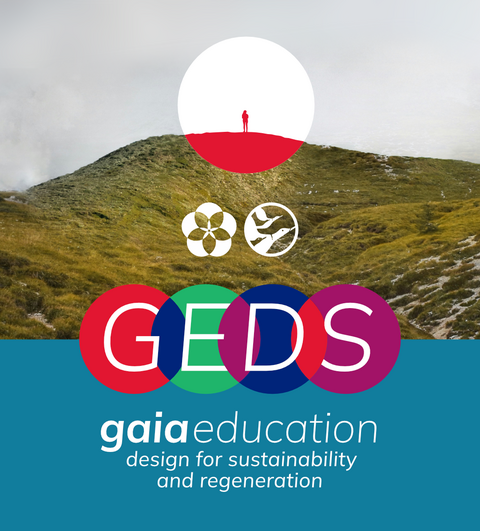

An inner journey to future consciousness
Three Horizons Thinking opens a visionary and practical method to articulate sought for future qualities and values, so that measures to bring them about can be deliberately, collaboratively and effectively pursued in the present.
With expert-led facilitation, you will:
Learn how
Gain confidence to
Apply practical tools t
Further classes and Q&A with Bill Sharpe.
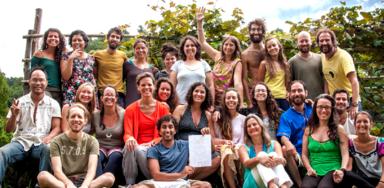

One course. Four dimensions. Unlimited impact.
Key Benefits
Gain a deep, practical understanding of sustainability, integrating
Join a global network of changemakers, collaborating
Earn an internationally recognised certificate, accredited
Three Horizons Thinking opens a visionary and practical method to articulate sought for future qualities and values, so that measures to bring them about can be deliberately, collaboratively and effectively pursued in the present..
GEDS equips you to be a visionary leader, driving innovation and transformation in your field while making a real impact.
If you're ready to integrate regeneration and sustainability into your work, this program is for you!


Course details
Course format:
Online, with live sessions and podcast episodes
Price:
300 GBP - Low income
400 GBP - Regular price
500 GBP - Abundant
Duration:
8 weeks - June 2nd to July 31st
Workload:
Approximately 3 hours per week
Structure:
8 Podcast episodes added by bonus interactive episodes and extra reading material
Weekly live sessions with Bill Sharpe and special guests
ADICIONAR MAIS UMA LINHA ABAIXO COM INFO SOBRE LIVE SESSIONS


Is the GEDS Full Course for You?
Anyone who lead or work with groups/communities.
Educators and change facilitators inspiring sustainable practices.
Entrepreneurs and business innovators integrating sustainability into their projects.
Policy makers designing systems for resilience.
Consultants and personal development coaches
Individuals passionate about driving meaningful change.
People who wish to align their actions with a new regenerative lifestyle.
Social or environmental activists
Students and researchers in social and environmental fields
Episodes main topics
The Social Dimension is one part of Gaia's unique 4D Model, which integrates social, ecological, economic and worldview dimensions to create lasting change.
Episode 1
Three Horizons and “The patterning of hope”
Invitation to Wales. Brief introduction to the Three Horizons framework. Understanding the voices of the Three Horizons, and what we mean by H2+ and H2-. Bill’s third horizon vision for Three horizons as a shared cultural practice.
The programme opens with a reflection on the intersection between three megatrends informing the world we live in: women’s repositioning in society, the accelerated pace of urbanisation and the imperative of decarbonisation of our lifestyles. It draws on recent reports and documents from international ‘agenda holders’ and ‘knowledge brokers’ that reaffirm the historical fact that cities have predominantly been planned and built by using men’s experience as a reference. We then discuss the implications of cities tending to function better for men than for women, children, older people, all levels of ableness, and gender identities and how cities are bridging this gap in urban planning.
Participants will be invited to:
• Examine how these megatrends influence the bio-cultural-spatial uniqueness of their place.
• Explore the ongoing impact of Modernism and Fordism on the continuities and discontinuities of cities, towns and neighbourhoods.
• Reflect on unique gender-sensitive policies and practices from cities such as Vienna, Lyon, Glasgow and Rio de Janeiro, which aim to bridge the historic gender gap in urban planning.
Episode 2
Seeing everything as patterns: holism with focus
How does a tree become a tree? How did the internet become the internet? How does seeing in patterns help us effect change? In this episode we dive into the world of ‘structures and flows’, a core practice of seeing the world through a lens of interconnectedness.
This module examines the theories of change shaping feminist cities and introduces the concept of co-evolving mutualism and its application across scales. It engages in practices like ‘mapping with your feet’ and ‘exposing mental models in the open air’ to uncover overlooked narratives from those who have been largely absent from urban planning. The module also introduces the concept of leverage points, emphasizing how targeted interventions can create lasting systemic impacts.
Participants will be invited to:
• Consider how to move beyond a zero-sum perspective while reflecting on how cities that work for women and girls can ultimately benefit everyone;
• Develop and apply an investigative regenerative framework tailored to their own contexts;
• Critically evaluate the impact of tokenistic consultations versus practices of deep listening;
• Identify effective ways to intervene in urban systems, organising leverage points in main analytical categories.
Episode 3
Identifying ecosystems for change
If everything is connected, how do you work with an ecosystem at the scale of change you wish to create? What’s a focal offering and how can we learn about creating one from the humble story of the pocket calculator? Why it’s important to shift from looking at the problems within an ecosystem to what matters within it.
This week explores how to design to increase rather than limit women, girls and children’s options in green spaces such as parks, gardens, woods, nature reserves, playing fields, and community allotments. The emphasis is on design that supports less confident groups – young girls, people with health conditions or impairments, and the elderly – to stake a claim to their green areas. This module also explores the need to increase the proportion of land given over to a wilder, less cultivated and the acceptance of wildlife’s right to evolve and diversify within urban environments.
Participants will be able to evaluate the importance and applicability of the following leverage points:
• Cultivating biophilia;
• Redistributing land use and budget allocation for equality and gendered landscapes;
• Creating conditions for wildness;
• Growing and foraging for health and wellbeing;
• Designing adventurous playgrounds for children and carers;
• Maximising use of available local resources in urban interventions.
Episode 4
Time, imagination and future consciousness
What if we had a term for memory but for the future? Perhaps this is future consciousness. The power of imagination in supporting life to unfold in new ways. How to work with the potential of the present moment. How far out should we vision and dream? How do we tune into the timeline for our ambitions? How does looking back help us look forward? And how old will Bill be when his vision for future consciousness being mainstream comes to life.
Since fostering gender equality is a fundamental trend of the 21st century and an essential aspect of good urbanism, this week is an invitation for the participants, to embrace the exciting, liberating and unprecedented prospects that come from designing cities that work for all. Thus, together we will weave the insights of the previous weeks and focus on developing a mosaic of visions that could be leveraged by the participants themselves. If we cannot imagine the future we want to create we will never get there!
Episode
What’s love got to do with it?
The importance of words to Bill and the meaning we make as we live them. The patterns that we stand for and the freedom we have to make small or big acts that stand apart from the current patterns of our lives. Working with challenge, how we show up. Dealing with stage fright with love. The art of facilitation as setting up a field of consciousness in which something emergent can manifest.
This week examines the practice of active travel – traveling with purpose using one’s own energy – through modes such as walking, cycling, wheeling, and scooting as a way of life. The discussion focuses on policies and practices worldwide that support the transition from car-centric to people-centric cities where traffic is evaporated, and people work with nature to create places that function at a speed conducive to living well.
Participants will be able to reflect on the importance and applicability of the following leverage points:
• Devising a library of women-tailored bike saddles;
• Making practical cycle awareness training mandatory for drivers;
• Designing ‘fresh air routes’ and low emissions zones from the perspective of women and infants;
• Rethinking the bus fare system for ‘trip-chaining’, and redesigning buses for encumbered travel;
• Delineating and flowing through cycling infrastructure.
Tuesday, May 27
Building Infrastructure for Bioregional Resilience and Regeneration
Facilitator: Stuart Cowan
The Buckminster Fuller Institute is working to support commons-based, shared infrastructure for bioregional resilience and regeneration. In this session, we will explore existing and emerging tools and processes that can support bioregional initiatives in sensing, mapping, knowledge systems, planning, governance, and finance.
This week explores the nuanced distinction between perceived safety—a subjective fear based on judgments about the possibility of harm—and the direct experience of feeling unsafe due to actual harm or threat. The focus is on strategies to expand the use of public spaces in the evenings and the role of natural surveillance, ‘the eyes on the street’ and ‘the guardians who belong’ in enhancing safety perceptions and deterring criminal behaviour.
Participants will be able to evaluate the importance and applicability of the following leverage points:
• Building confidence thorough easy-to-access self-defence training, and seminars on rights of women and domestic violence.
• Working with men to redistribute power, balance representation and transform legal and planning systems.
• Improving natural surveillance by design.
• Scheduling regular patrol walks by ‘wardens who belong’.
• Expanding the use of public space in the evenings by creating favourable bio-cultural-spatial conditions.
• Co-creating transitional safeguarding public spaces for young women.
• Co-designing places with (not only for) teenage girls.
Tuesday, June 3
Biosystemic Bioregioning
Facilitator: Melina Angel
Learn how to create a collective identity from a bioinspired systemic perspective, fostering connection and collaboration among all bioregional actors. The internal indicators of a bioregion differ from the external outcomes we seek in the world, making it essential to incorporate an internal biomimetic perspective into bioregioning. This session will showcase examples from Colombia, highlighting innovation and the wisdom of connectivity from the Global South.
This week focuses on sense of place that speaks about meaningful relationships between people and specific locations and its three manifestations as place identity, where individuals define themselves through deep interactions with a particular locality; place attachment, an emotional bond that fosters a sense of belonging and connection to the environment; or place dependence, where attachment arises from functional reliance on a specific location. By exploring these dimensions, participants will gain insights into how to enable sense of place to evolve in communities everywhere.
Participants will be able to evaluate the importance and applicability of the following leverage points:
• Developing spaces for gathering and belonging;
• Designing urban extensions while evolving the whole;
• Shifting from a mentality of maintenance to an attitude of care;
• Co-developing sympathetic infrastructure enabling a sense of co-ownership and care;
• Practising a culture of deep listening in the design and development of local plans;
• Infusing beauty into cities’ form and function;
• Developing inter-generational housing for a maturing humanity.
Tuesday, June 10
Bringing together ancient and modern knowledge and practice in Hawaii
Facilitator: Udi Mandel, Kelly Teamey and Kū Kahakalau
This session brings together indigenous Hawaiian and other multidisciplinary systems of knowledge and practice, featuring examples from Hawaiʻi Island. We will explore how learning with and through a key species in the bioregion—such as the hala tree (Pandanus tectorius in Hawaii)—can serve as a bridge between indigenous knowledge, scientific disciplines, the arts, and land stewardship, fostering mutual flourishing. Additionally, we will share insights on how supporting traditional stewards of culture and land helps regenerate Hawaiian foodways while promoting the flourishing of aloha ʻāina—a deep, reciprocal love and care for the land and sea, which sustains all life.
Since fostering gender equality is a fundamental trend of the 21st century and an essential aspect of good urbanism, this week is an invitation for the participants, to embrace the exciting, liberating and unprecedented prospects that come from designing cities that work for all. Thus, together we will weave the insights of the previous weeks and focus on developing a mosaic of visions that could be leveraged by the participants themselves. If we cannot imagine the future we want to create we will never get there!
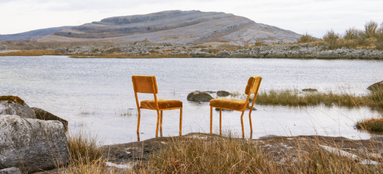
Tuesday, June 17
Artistic practice, the Story of Place & Community Resilience
Facilitator: Eileen Hutton, Dr. Brendan Dunford, Maeve Stone & Katerina Gribkoff
As creative practitioners, artists have honed capacities for storytelling, for making the invisible visible, for understanding the language of cultural values, and for being adept at systems thinking and fostering connectivity. These are essential methodologies for enquiring into the story of place and how it functions. With contributions from Burrenbeo, this webinar will introduce the Burren region as the context for three socially and ecologically engaged case studies: the MFA in Art & Ecology programmes at Burren College of Art, along with PhD candidate Katerina Gribkoff, and the Creative Climate Action project The Time Machine, as presented by Maeve Stone of Cracking Light Production.
Since fostering gender equality is a fundamental trend of the 21st century and an essential aspect of good urbanism, this week is an invitation for the participants, to embrace the exciting, liberating and unprecedented prospects that come from designing cities that work for all. Thus, together we will weave the insights of the previous weeks and focus on developing a mosaic of visions that could be leveraged by the participants themselves. If we cannot imagine the future we want to create we will never get there!
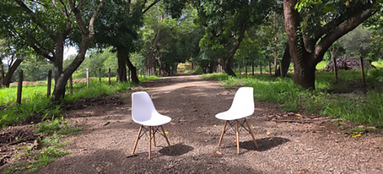
Tuesday, June 24
Bioregional development: putting life at the center
Facilitator: Eduard Muller
Based on many years of working with bioregional development in Costa Rica and many places, Eduard Muller will walk through the diverse strategies for defining the limits of a bioregion, based on social, political, and geographical-ecological characteristics. In addition to discussing culture, identity, and the formation of governance structures (from the viewpoint of the Global South), the session will explore how to establish regenerative economies for inclusive development. Examples of regenerating conditions for life through land management practices, including regenerative agriculture and holistic grazing, will also be presented. Lastly, the session will explore how to build capacities across bioregions to co-create solutions.
Since fostering gender equality is a fundamental trend of the 21st century and an essential aspect of good urbanism, this week is an invitation for the participants, to embrace the exciting, liberating and unprecedented prospects that come from designing cities that work for all. Thus, together we will weave the insights of the previous weeks and focus on developing a mosaic of visions that could be leveraged by the participants themselves. If we cannot imagine the future we want to create we will never get there!
Guided by experts in social transformation.
The GEDS Full Course is guided by dedicated professionals with real-world experience across all dimensions of sustainability.
Meet some of our facilitators:
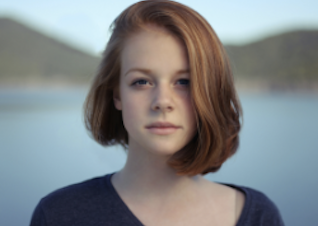
Aline
Lorem ipsum dolor sit amet, consectetur adipiscing elit. Ut mattis dolor massa, eu congue lorem lobortis vitae. Suspendisse id accumsan neque. Cras convallis nibh nec massa placerat, a egestas urna vulputate. Ut quis mi ac odio accumsan vehicula.
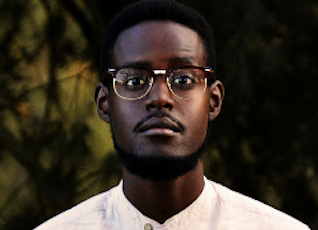
Gracelynn
Lorem ipsum dolor sit amet, consectetur adipiscing elit. Ut mattis dolor massa, eu congue lorem lobortis vitae. Suspendisse id accumsan neque. Cras convallis nibh nec massa placerat, a egestas urna vulputate. Ut quis mi ac odio accumsan vehicula.
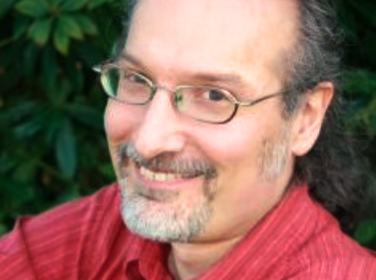
Root Cuthbertson
Growing up between Montreal, New Hampshire, and Boston, Root learned to love dancing, music, poetry, public libraries, matching needs with resources, monofloral honeys, generously inclusive humor, and stories about healing and hope.
Learn from Global Sustainability Experts
The GEDS Full Course is guided by dedicated professionals with real-world experience across all dimensions of sustainability.
Meet some of our facilitators:

Aline
Lorem ipsum dolor sit amet, consectetur adipiscing elit. Ut mattis dolor massa, eu congue lorem lobortis vitae. Suspendisse id accumsan neque. Cras convallis nibh nec massa placerat, a egestas urna vulputate. Ut quis mi ac odio accumsan vehicula.

Gracelynn
Lorem ipsum dolor sit amet, consectetur adipiscing elit. Ut mattis dolor massa, eu congue lorem lobortis vitae. Suspendisse id accumsan neque. Cras convallis nibh nec massa placerat, a egestas urna vulputate. Ut quis mi ac odio accumsan vehicula.

Root Cuthbertson
Growing up between Montreal, New Hampshire, and Boston, Root learned to love dancing, music, poetry, public libraries, matching needs with resources, monofloral honeys, generously inclusive humor, and stories about healing and hope.
What Our Learners Say.


I realize I am more capable than I had assumed. I am grateful for the learning format to facilitate speedy learning. Our project planning now includes more depth and detailing thanks to this course."
– K. U. S.


The course content was very comprehensive, detailed and practical. I appreciated how the facilitators brought a focus on real-world applications from the very beginning. They both modelled the principles of harmonious and supportive group-working that we were learning."
– N. B.


Freedom and flexibility. Meaningful content. Great facilitation. Inspirational and diverse group of other students.
Loved the mix of self study and live sessions."
– E. C.
Have questions? We’ve got answers.
No previous experience is required. All you need is a passion for community building and collaboration.
The course is designed to fit busy schedules with around 10 hours per week of flexible study. Though highly encouraged, Live Sessions are not mandatory and are recorded to be watched later.
Yes! The course provides hands-on tools you can apply immediately in your community.
A comprehensive programme covering four dimensions of sustainability: social, ecological, economic, and worldview.
No prior experience is required. This course is designed for both beginners and advanced learners. Whether you’re new to sustainability or looking to deepen your expertise, the course provides accessible and actionable content for everyone.
Entirely online with live sessions, group discussions, and self-paced assignments. You’ll have access to experienced facilitators, a supportive learning community, and rich resource materials.
Yes, each dimension can be taken as a standalone course, so if you are interested in specific dimensions, you can take them separately. Enrolling in the full course provides a holistic understanding of sustainability and is more cost-effective.
The Design Studio is the integration piece of the GEDS Full programme that you can join after complete the 4 Dimensions.
Participants have life-long access to the course material. Though the course has a defined length, participants can go back to the material any time after the course completion.
Have questions? We’ve got answers.
A comprehensive programme covering four dimensions of sustainability: social, ecological, economic, and worldview.
No prior experience is required. This course is designed for both beginners and advanced learners. Whether you’re new to sustainability or looking to deepen your expertise, the course provides accessible and actionable content for everyone.
Entirely online with live sessions, group discussions, and self-paced assignments. You’ll have access to experienced facilitators, a supportive learning community, and rich resource materials.
Yes, each dimension can be taken as a standalone course, so if you are interested in specific dimensions, you can take them separately. Enrolling in the full course provides a holistic understanding of sustainability and is more cost-effective.
The Design Studio is the integration piece of the GEDS Full programme that you can join after complete the 4 Dimensions.
Participants have life-long access to the course material. Though the course has a defined length, participants can go back to the material any time after the course completion.
A comprehensive programme covering four dimensions of sustainability: social, ecological, economic, and worldview.
No prior experience is required. This course is designed for both beginners and advanced learners. Whether you’re new to sustainability or looking to deepen your expertise, the course provides accessible and actionable content for everyone.
Entirely online with live sessions, group discussions, and self-paced assignments. You’ll have access to experienced facilitators, a supportive learning community, and rich resource materials.
Yes, each dimension can be taken as a standalone course, so if you are interested in specific dimensions, you can take them separately. Enrolling in the full course provides a holistic understanding of sustainability and is more cost-effective.
The Design Studio is the integration piece of the GEDS Full programme that you can join after complete the 4 Dimensions.
Participants have life-long access to the course material. Though the course has a defined length, participants can go back to the material any time after the course completion.




Take your next step toward a Sustainable Future.
Be part of a global community of sustainability leaders. Secure your place today and start your transformative journey!

